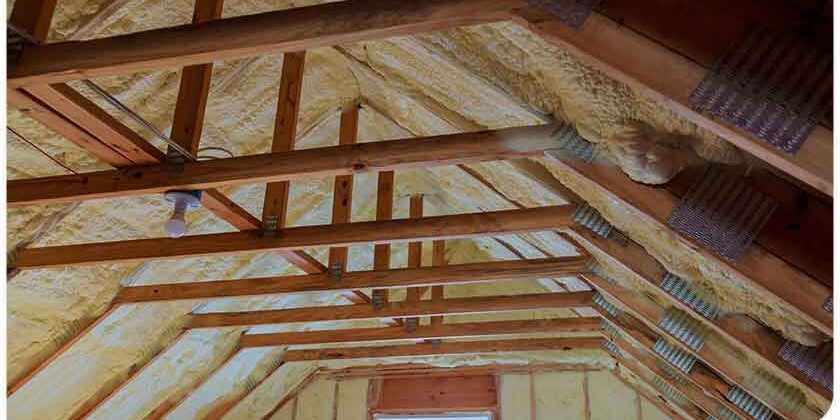
Keeping the temperature of your room at an acceptable level is vital for comfort. Without it, you can’t relax fully, you can’t enjoy your hobbies, and even your sleep will be disrupted. Thankfully, most of our traditional rooms are designed with this in mind, and therefore, we are usually quite comfortable in them.
But as the home market evolves and space is becoming more and more a luxury, many homeowners have resorted into converting their attic into a livable room. It is a good strategy to have an extra room for a family member, reduce costs, and maximize space utilization.
Sadly, even though attic conversions have become more popular. Our homes aren’t still fully adapted to keeping the temperature in the attic in check and regulating it. That’s why many people face issues with it: the attic becoming too hot in the summer and too cold in the winter, which causes considerable discomfort to whoever lives there, and it might even pose a risk to their health.
This is why this article was written. We’re going to shed light on a long-overlooked part of attic conversion: temperature control. We’ve compiled the most useful tips that will help you get an excellent attic with comfortable temperature ranges.
#1 Proper Air Flow
If you have centralized heating in your home, you understand how important airflow is. Most centralized heating and cooling designs in homes don’t have heating devices in each and every room, that would be too costly and energy-intensive, rather, they rely on smart air circulation to ensure that the heat is fairly distributed over all the rooms and an acceptable temperature range is maintained.
As the attics in most houses have really bad airflow, the centralized heating/cooling system doesn’t properly do its job, and you get subpar cooling in the winter, which causes discomfort. This is why ensuring proper airflow can be one important piece of the puzzle in solving the issue and cooling down the attic in the summer.
#2 Curtains Over the Windows
One of the main ways heat transfers is through direct sunlight, and if you block the direct sunlight from reaching your attic, you’ll be able to significantly cool down your attic and keep temperatures at an acceptable range.
Typically, a lot of people don’t have curtains in their attics, and when they convert it, they don’t install it. This is a major mistake; not only do you need to install curtains, you need to install high-quality ones that block out most of the sunlight. This is because curtains aren’t only important in keeping temps down, but they’re also necessary to regulate sunlight and ensure maximum privacy. This is why you need the best rooflight blinds out there.
#3 The Color Scheme of the Room
It is no secret to anyone who has read up on room design or just general science that different colours absorb heat at different levels. If you want your room to stay cool, you need lighter colours that reflect most of the heat back outside and don’t absorb it and retain it in the room. Painting your room is relatively inexpensive and straightforward, and so it is one of the easier fixes out there. Although it is rarely sufficient on its own, so you need to keep that in mind.
